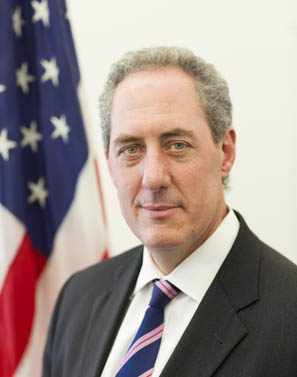TTIP Action aggregates the latest news and best analysis from across the United States and European Union on the ongoing negotiations for the Transatlantic Trade and Investment Partnership (TTIP).
News
US Trade Deals Remain on Track, says Froman
Ambassador Michael Froman, US Trade Representative, set out to reassure stakeholders in a statement to the Financial Times that the administration was convinced that it would eventually secure congressional backing even after Senator Harry Reid’s clear opposition to any fast-track authority bill. Mr. Froman stated that in efforts to work with Congress, “substance” should dictate the outline of the agreement, rather than the calendar. (Financial Times)
Move on Data Protection or Fail on TTIP, EU Parliament Chair Says
In the wake of the NSA data privacy scandal Elmar Brok, Chair of the European Parliament Foreign Affairs Committee, has urged the US to move more swiftly on including a clause in TTIP negotiations that would give EU citizens equal rights to seek redress when their data has been abused. Data privacy will remain a key sticking point in negotiations until a transatlantic compromise can be found. (IP Watch)
Obama’s Trade Agenda Hangs on a Thin Reid
Following the State of the Union, Senator Reid seemingly dealt President Obama a serious setback by flatly rejecting any movement on the bipartisan trade promotion authority bill in the Senate. As Edward Luce writes, Reid is justifiably concerned with retaining his Democratic majority in the upper chamber, but he should take a long-term view and recognize the benefits of freer international trade for the American economy. (Financial Times)
Recent Analysis
Why a US-European Trade Deal is a Win-Win
Joe Kaeser, the CEO of Siemens, writes how TTIP would make both the US and EU more attractive as foreign direct investment destinations and sites for future development given the common set of rules and regulations the two sides are attempting to agree on. Moreover, Siemens and other globally-integrated companies are eager for the US and EU to set high global standards that will reinforce strong intellectual property and environmental protections across all jurisdictions. (Wall Street Journal)
What are the Benefits of the TTIP?
The Wilson Center put together an excellent overview of the economic benefits of TTIP which breakdown gains on a member-state basis. Unsurprisingly, the countries that trade most already with the US stand to gain most, and the US itself is estimated to gain most – a possible real per capita income gain of 13.4%, according to a recent Bertelsmann Foundation study. (Wilson Center)
TTIP Offers a ‘Unique Opportunity’ to Boost EU and US Economies
Now that the initial lines in the sand have been drawn, the EU’s chief TTIP negotiator Ignacio Garcia Barcero admits that the hardest part of the trade negotiations start now. Some of the main hurdles touch on some of the deep divides that have prevented transatlantic deals in the past. For example, EU citizens are concerned that their markets will be opened to genetically modified foods and hormone-treated beef. One of the other main sticking points involves addressing the differences between state and federal rules and regulations in the US. (The Parliament)
US Benefits from Trade Deals – Never Mind the Protectionists’ Hype
Charles Lane writes in the Washington Post that free trade is a huge net benefit for all sides, and cites several reasons–both economic and geostrategic–for the President and Congress to support the Trans-Pacific Partnership, and by association, eventually TTIP as well. (Washington Post)
Interview: Dutch economist says transatlantic trade deal could influence China’s growth
According to Dutch economist Piet Buitelaar, China stands to be negatively affected both directly and indirectly from a TTIP deal. New transatlantic rules on labor, the environment and food safety could raise costs for Chinese companies to enter EU and US markets. The solution: greater transparency and inclusion of China in trade talks, which would require China to follow the new golden standards the US and EU are trying to set. (Global Times)
Upcoming Events
- The Internet as a Platform for International Trade – February 5
- “Think the US Market Is More Unified and Liberalized than the EU? Think again!” – February 6
- The Danger of Divergence: Transatlantic Financial Reform & the G20 Agenda in Brussels – February 12.
- The European-American Chamber of Commerce’s Annual Economic Update – February 12.
- TTIP: an Opinion Leader Roundtable – What do the experts really think about the TTIP? in Paris, France – February 13
- The Danger of Divergence: Transatlantic Financial Reform & the G20 Agenda in London – February 14. Click here for details.
- Stock Taking Exercise between EU Commissioner Karel de Gucht and USTR Michael Froman in Washington – February 17-18
- Round 4 of TTIP Negotiations in Brussels – March 10-14
